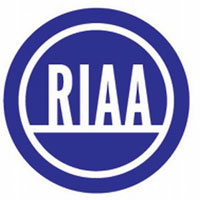The RIAA's announcement last week of an end to its P2P lawsuits in favor of working with ISPs to warn or cut off offenders was almost unanimously praised as a move in the right direction. There are a lot of "ifs" in the equation, however, and it appears that one small ISP has already stumbled upon the first: policing P2P users isn't cheap no matter who is waving the baton.
Jerry Scroggin is the owner of Bayou Internet and Communications(BIC), a small ISP based in Monroe, Louisiana with around 11,000 small business, residential, and municipal customers. BIC already receives notifications from the RIAA each month, and each time"I ask for their billing address," Scroggin told CNET. "Usually, I never hear back."
Scroggin understands the labels' need to protect their content and says he has a history of cooperating with law enforcement. In the case of RIAA notices, however, there is a lack of information to work from, but significant expense is involved when trying to track down a user who may not be doing anything wrong.
 It costs both time and money to do things like pay technicians to sift through traffic logs, especially when users can spoof IPs and otherwise obfuscate their activity. Complicating matters further, Scroggin says that P2P use doesn't carry the same sense of urgency that, say, child porn traffickers or gun-happy teens do. Spending long hours to stop what may not even be a crime, only to pick up the tab in full, is simply not within a small ISP's budget.
It costs both time and money to do things like pay technicians to sift through traffic logs, especially when users can spoof IPs and otherwise obfuscate their activity. Complicating matters further, Scroggin says that P2P use doesn't carry the same sense of urgency that, say, child porn traffickers or gun-happy teens do. Spending long hours to stop what may not even be a crime, only to pick up the tab in full, is simply not within a small ISP's budget.
After fighting an extremely unpopular (and arguably unsuccessful) war-by-lawsuit over the last few years, the RIAA is undoubtedly all too familiar with the costs of punishing P2P users. This new "just let the ISPs handle it" approach is certainly less abrasive in a variety of ways, and it also saves the organization a lot of money (and face) while having the potential to be much more effective than the old strategy. But ISPs aren't excited about bearing some of the costs of the RIAA's copyright enforcement efforts, and it may be one reason why Verizon isn't going along with the labels' new enforcement initiative.
reader comments